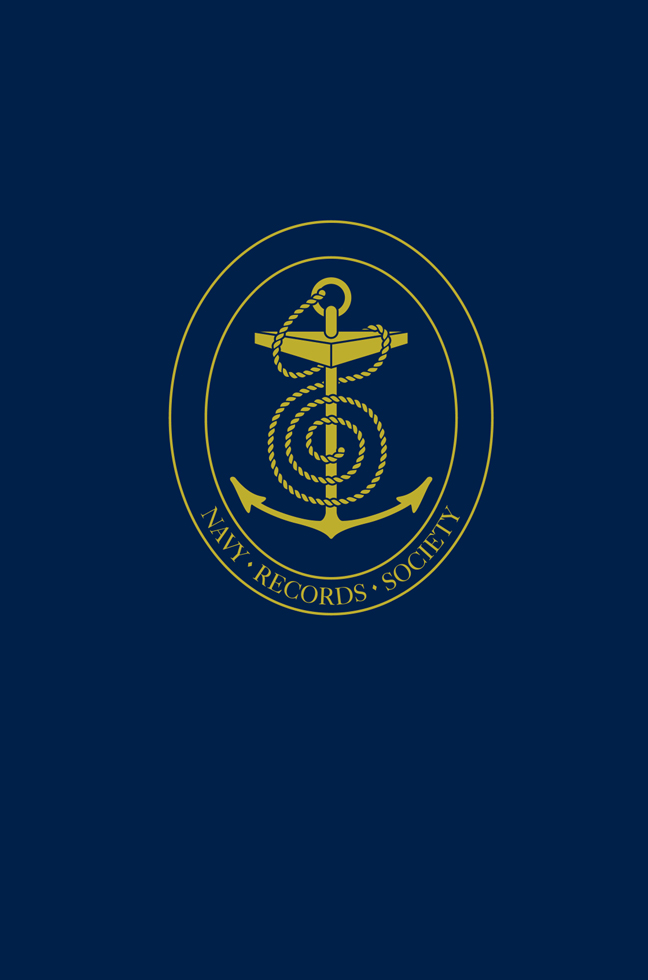Book contents
- Frontmatter
- Dedication
- Contents
- List of Plates
- Preface
- List of Abbreviations
- I The Provision of Ships for Edward I's Campaigns in Scotland, 1300–1306: Barges and Merchantmen
- II Lord Admiral Lisle and the Invasion of Scotland, 1544
- III The Journal of the Voyage of the Marigold to Iceland, 1654
- IV Neutrality, Sovereignty and Jurisdiction: Two Cases in the Admiralty Court, 1798–1805
- V The Supply of Timber for the Royal Navy, c.1803–c.1830
- VI The Journal of Lieutenant George Bedford, 1835–36: Surveying on the West Coast of Africa
- VII The Journal of Lieutenant Charles Knowles in the River Niger, 1864
- VIII The Diary of Signal Bosun Henry Eason: The Naval Brigade in the Zulu War, 1879
- IX The Autobiography of Chief Gunner Alexander Grant: HMS Lion at the Battle of Jutland, 1916
- X Australian Naval Defence: Selections from the Papers and Correspondence of Captain W. H. C. S. Thring, 1913–34
- XI The Relief of Admiral North from Gibraltar in 1940
- XII The Development of an Independent Navy for Australia: Correspondence between the First Naval Member and the First Sea Lord, 1947–59
- Contents of Previous Naval Miscellany Volumes
- Index
- Miscellaneous Endmatter
XI - The Relief of Admiral North from Gibraltar in 1940
Published online by Cambridge University Press: 05 March 2024
- Frontmatter
- Dedication
- Contents
- List of Plates
- Preface
- List of Abbreviations
- I The Provision of Ships for Edward I's Campaigns in Scotland, 1300–1306: Barges and Merchantmen
- II Lord Admiral Lisle and the Invasion of Scotland, 1544
- III The Journal of the Voyage of the Marigold to Iceland, 1654
- IV Neutrality, Sovereignty and Jurisdiction: Two Cases in the Admiralty Court, 1798–1805
- V The Supply of Timber for the Royal Navy, c.1803–c.1830
- VI The Journal of Lieutenant George Bedford, 1835–36: Surveying on the West Coast of Africa
- VII The Journal of Lieutenant Charles Knowles in the River Niger, 1864
- VIII The Diary of Signal Bosun Henry Eason: The Naval Brigade in the Zulu War, 1879
- IX The Autobiography of Chief Gunner Alexander Grant: HMS Lion at the Battle of Jutland, 1916
- X Australian Naval Defence: Selections from the Papers and Correspondence of Captain W. H. C. S. Thring, 1913–34
- XI The Relief of Admiral North from Gibraltar in 1940
- XII The Development of an Independent Navy for Australia: Correspondence between the First Naval Member and the First Sea Lord, 1947–59
- Contents of Previous Naval Miscellany Volumes
- Index
- Miscellaneous Endmatter
Summary
Vice-Admiral Sir Dudley North (1881–1961) was appointed Flag Officer Commanding North Atlantic Station, based on Gibraltar, on 1 November 1939, and had his appointment extended in May 1940, being promoted to full Admiral. On 15 October 1940 (though the changeover was delayed until 14 December), the Admiralty relieved him early, alleging that he had permitted the free passage of a French squadron through the Strait of Gibraltar on 11 September 1940; as a consequence the Board had lost confidence in him, accusing him of not performing his duty and of failing to show a sense of initiative. He retired on 25 December 1941. North rejected the reasons advanced by the Admiralty for his early relief and requested a Court Martial or a Court of Enquiry on several occasions; he spent the rest of his life trying to clear his name, being supported by most of the living Admirals of the Fleet and several other senior officers. Through his efforts and theirs he achieved partial absolution from the Prime Minister, Harold Macmillan, in 1957. After leaving Gibraltar and later the Royal Navy, North served humbly in the Home Guard before being recalled in 1943, as a retired officer, as Flag Officer Yarmouth. In 1946 King George VI re-appointed him Admiral of the Royal Yachts, a post he had held between 1936 and 1939.
The immediate cause of North's early relief was the unmolested passage of three French cruisers and three large destroyers from Toulon to Dakar via the Strait of Gibraltar on 11 September 1940. North had incurred already the wrath of the Prime Minister, Winston Churchill, the First Lord (A. V. Alexander) and the First Sea Lord (Admiral of the Fleet Sir Dudley Pound) for his critical views – expressed after the event – on the attack on the French fleet at Mers-el-Kébir on 3 July 1940 by Force H, commanded by his great friend Vice-Admiral Sir James Somerville and also based on Gibraltar [1, 2]. He was reprimanded by the Board of Admiralty for protesting officially about a decision already taken but Pound resisted calls for his replacement from Churchill and Alexander, feeling that there were insufficient grounds for his relief and that he deserved a second chance [3, 8, 9]. Though he did not realise it, North therefore remained in post throughout the summer of 1940 pending another error of judgement.
- Type
- Chapter
- Information
- The Naval Miscellany , pp. 463 - 510Publisher: Boydell & BrewerFirst published in: 2024

